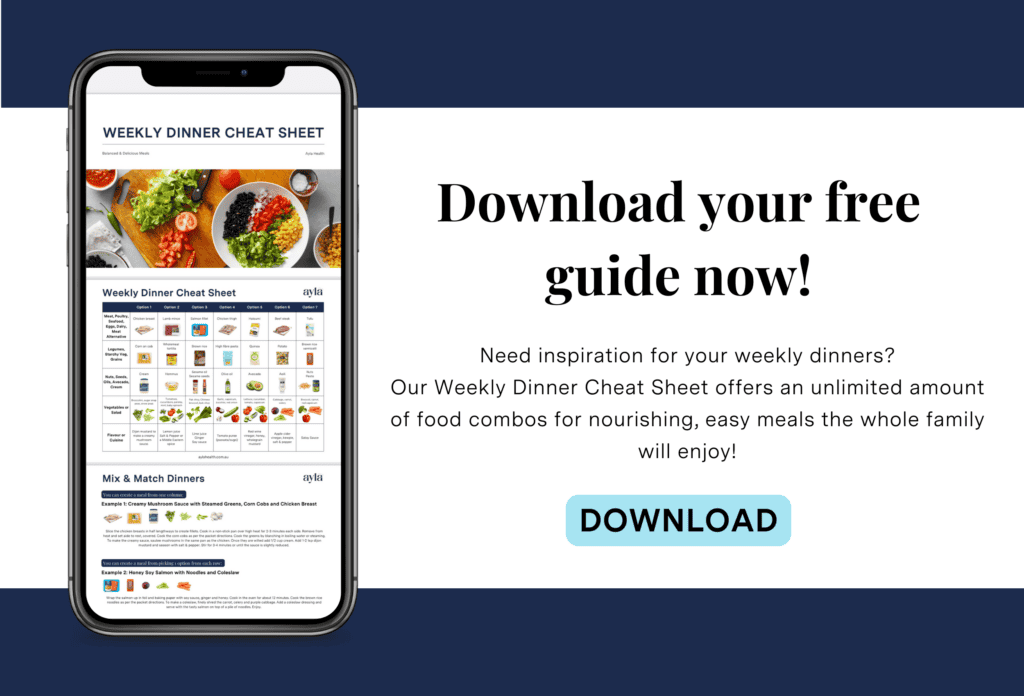
My boss is driving me crazy. I can’t get this work finished on time. I don’t see how this relationship can get better. I’m not coping in lockdown. I never feel good enough. I hate my body. I can’t stick to healthy eating. I always eat when I’m stressed.
Do these statements feel familiar to you? They are the language of an emotional eater.
Emotional eating happens to all of us on some level. Some of us struggle with it more than others. Regardless, at its core, emotional eating is a learned behaviour and is defined as: the tendency to overeat in response to negative emotions, such as anxiety or irritability. Emotional eating can also be conceptualised as a form of disinhibition, where individuals feel compelled to eat in response to emotional cues and lack control over inhibiting this (Stunkard and Messick 1985).
In a nutshell, emotional eaters have difficulty tolerating and managing negative moods and grabbing something fatty, salty or sweet to eat is an effort to cope or overcome a really intense mood state.
Research suggests that 60% or more of individuals who are overweight or obese are also emotional eaters (Ganley 1989) and the science confirms that emotional eaters are particularly likely to consume foods high in fat, sugar and calories in response to negative emotions (Elfhag and Rossner 2005).
Research also suggests that emotional eaters are more likely to gain weight over time and worse, they’re less likely to achieve weight loss when they attempt it.
Talk about frustrating.
What’s important to understand is that emotional eating is a symptom of complex underlying psychology. There are NO quick fixes and people need to exercise kindness, grace and balance when it comes to making changes in this area of their life.
The good news is, because emotional eating is a learned behaviour, it come be unlearned and people can create for themselves a new pattern of behaviour that better serves their long term physical and mental health.
Here are 8 science-back techniques for helping you to stop eating your emotions:
Treat Your Vitamin D Deficiency
If you’re experiencing high amounts of negative emotions, specifically symptoms of depression and anxiety, one of the ways that you can curb emotional eating is treating the root cause of why you’re experiencing low emotions in the first place.
Did you know that depression and anxiety are more common during the winter months? These extreme mood changes are known as Seasonal Affective Disorder (SAD). SAD is believed to be caused by several factors, one of those being a deficiency of vitamin D.
Vitamin D is not a true vitamin, because your body can make vitamins D itself. However, it needs sunlight on your skin to do so. During winter the sun is not as strong, we stay indoors more and if you’re an office work or cover up most of your skin for cultural reasons you’re at a high risk of vitamin D deficiency.
It would be worth checking in with your GP and getting some bloods done to check your vitamin D (and other nutrient) status. If you are deficient, a supplement and safe sun regime could go a long one to helping your overall physical and mental wellbeing. Don’t take supplements without a good reason to do so, like deficiency, and check with a dietitian and your GP before making major dietary changes.
Practice Mindful Eating
Most of the weight management and healthy eating programs available DO NOT address emotional eating, yet most people who are overweight experience emotional eating tendencies. Programs that simply tell you what to eat with recipes and meal plans don’t help you address the underlying reasons about why you choose to eat certain foods when you’re stressed.
Stop beating yourself up for not being able to stick to these programs, there’s nothing wrong with you, they just don’t have the solution to your specific problem.
Research shows that there are several psychological approaches that have been proposed to help emotional eaters. One of those is practicing mindfulness.
Mindful eating is about being FULLY present in the moment when you eat. Stopping other activities while you eat like TV watching, using your smart phone, working, etc and focusing specifically on your meal can have a profound effect on when, what, and how much you choose to eat. The outcome is typically stopping when you’re full, experiencing the flavours of food and not overeating them and the ability to enjoy tasty meals without over-indulging.
Work with a qualified dietitian who specialises in this practice and allow yourself to make small, steady steps towards listening to your body and feeling good about what you eat.
Get Food Awareness
Like mindfulness, food awareness is being fully clued into what you eat, each and every day. Most people have very poor food awareness. What about you?
If I asked you to recall EVERYTHING that you ate and drank yesterday, could you? Can you recall the portions, all the foods, even the ones you grabbed on the go or that you ate while you were busy doing other things? In my experience (and I’ve been asking people what they ate yesterday for over 10 years) you wouldn’t be able to do it accurately. Not even I can, and I’m a nutritionist!
The first rule of change is that you cannot change what you’re not aware of and good food awareness helps you understand exactly what, when and why you’re eating what you eat. Once you have that information, you can start to take steps to change it.
For example: I once worked with a client who experienced emotional eating tendencies regularly. After recording what she ate and drank for 1 week, this food awareness highlighted to her that emotional eating only ever happened in the afternoon and that it was more likely to occur when she’d had a day when she was ‘trying’ to be healthier and was eating less than normal throughout the day. There were also particular triggers, like hearing that her husband was working later or the kids having a tantrum after school.
This awareness meant that the solution to her problem was multi-factorial. First, we ensured she was eating adequately and wasn’t hungry. Second, we re-created the routine in the afternoon to get her out and away from the kitchen and lastly she decided that she’d also seek psychological support for managing through the underlying trauma that was frequently re-surfacing with particular triggers throughout the week.
Articulate Your Triggers
Identifying your triggers, is really the result of getting good food awareness, like we discussed above. It’s understanding what exactly triggers you to eat and you won’t know that until you start to accurately record it.
A food awareness journal can provide you with so much insight into what and why you eat but it will only work if you allow yourself to eat as you normally would and record what happens without judgement and with lots of kindness and curiosity. If you eat a whole packet of biscuits but then call yourself awful names and feel terrible about it, you won’t write it down or allow yourself the opportunity to learn about this challenge.
If you cannot face it, you will not overcome it. And you cannot face it with judgement and self-loathing.
Once you understand your triggers, and truly face them for what they are, you will finally give yourself the space and grace to create a new way of behaving!
The key to remember here is that you cannot change everything all at once – it’s too much! It’s also the reason why our mobile app is based on the concept of ‘one habit at a time’. You need to ensure you have enough mental energy available to tackle the challenge you face fully and not overwhelm yourself with a million things to do!
Set Realistic Health Goals
One of the biggest mistakes people make is that they set unrealistic health goals. This leads to never achieving their goals and this constant failure can be a vicious cycle that promotes emotional eating behaviour.
A person who hasn’t exercised in years, sets themselves the goal of going to the gym every day. A person who has eaten at night since they were teenagers expects themselves to follow a special diet and stop that behaviour immediately. A person who drinks 6 coffees a day expects themselves to go cold turkey while they navigate a busy work and family life. A person who buys themselves lunch every day expects themselves to make their lunch at home overnight and never buy takeaway again. These expectations seem silly when laid out like this, but people set these kinds of health goals all the time, and they rarely achieve them.
While there are examples of people who have been able to make and sustain drastic change, this is not the story for most people.
Change, particularly self-initiated change, takes time and people need to think very clearly about what and how their desired new behaviour will fit into their daily life.
Leading health behaviour theories suggest that intentions are the most immediate and important predictors of behaviour. However, research suggests that there is a substantial ‘gap’ between intentions and health behaviours. Meaning you might want to do a certain health behaviour, but you still don’t do what it takes.
One study found that goal realism influences how effectively intentions are translated into action. Meaning the more realistic your health goal, the more your intention to achieve that goal translates into you doing something different.
A realistic health goal is one that people feel confident that they can achieve, and they’ve spent time working out HOW they are going to achieve it. An unrealistic goal is one that feels difficult to attain. You want it but you feel like you probably won’t do it and instead of creating pathways for how you will attain it you simply fantasise about it, which science actually says is the enemy of achieving goals.
If emotional eating gets you down, you can help yourself feel better about yourself by setting goals that you can achieve. This will build your self-confidence and a belief in yourself that you can continue to do positive things for yourself and your body. This will lead to more positive change.
Find other Distraction Techniques
There are lots of ways that we can escape negative emotion that don’t revolve around food. This solution simply requires you to change some well-worn pathways in the brain and practice doing something new that genuinely helps you feel better.
The important thing to remember here is that you are NOT a bad person for eating food to make you feel better. Food is delicious. It does make you feel better. Fat and sugar, especially together in one food, tastes great and carbohydrates in your blood stream help you feel energised and alive.
You don’t have to ditch emotional eating altogether. One of life’s great pleasures is enjoying good food and allowing that enjoyment to lift your mood. You may just find that a whole toolbox of distraction techniques that you can use will give you a bit more balance with your coping mechanisms, especially if you’re wanting to lose weight or manage a health condition with your diet.
Walking, exercise, phoning a friend, mediation, yoga, a long hot shower, deep breathing, prayer, a hobby are all examples of activities that you can do to help you manage an intense negative mood. You just need to trial and error these ideas to find what works for you.
It’s also highly recommended that you work with a psychologist. You’ll be encouraged to understand the root cause of your negative emotions and be taught how to better manage them.
Ensure You’re Eating Adequately
I hinted towards this in an earlier point. I frequently meet emotional eaters who binge worse on the days when they were trying to be ‘healthy’. And when I say healthy, I mean restrictive. If you’re not eating enough and your body is genuinely hungry, if you’re confronted with a stressful situation or something that triggers you, this is a recipe for emotional eating disaster.
The best thing you can do to manage your emotional eating is to stop dieting. Stop being restrictive. Stop trying to ask your body to live on less food than it needs.
If emotional eating is the key thing that’s stopping you from losing weight, then starting another fad diet is not going to help you! It’s time to get to the bottom of why you turn to food in the first place and to do that you need to feed your body adequately so that it’s not going through periods where it’s excessively hungry and prone to overeating.
Focussing your efforts on nourishment and reframing your view of healthy eating to be including lots of healthy foods, rather than restricting foods will not only help you manage your emotional eating, but new research has found that high diet quality and ensuring you’re getting in lots of nutritious foods is also linked to improvements in symptoms of depression and anxiety. Bonus!
Plan Your Favourite Foods into Your Day
The worst thing you can do to manage your emotional eating is to create a set of rules around what you can and can’t eat. I guarantee that rule making will only lead you to rebellion and eating the forbidden food in large quantities.
When you restrict something that you like eating, you will do two things to satisfy two sides of yourself:
Firstly, you’ll create the rule to satisfy the part of yourself that’s fed up with the poor food behaviour. It makes you feel in control and that you’re taking action towards making yourself better.
Secondly, and conversely, you delay the restriction (and the rule) until tomorrow so that you can eat your favourite food now and satisfy the part of you that loves this food and feels like it needs it to cope.
The result of this is constant delayed restriction of: “I’ll start the diet tomorrow.”, or “I’ll cut out chocolate tomorrow.” is a frustrating merry-go-round as tomorrow never comes. You’re always living in today and today; you’re allowed to eat it because tomorrow it’s off limits. Gah! We’re crazy, messed up humans!
The best way to overcome this is to plan your favourite foods intentionally and purposefully into your day.
In the context of a vegetable rich, well balance diet there is plenty of room for something delicious and not as nutritious. Let yourself eat it! If you like cherry ripe, plan a cherry ripe into your day. Save it for when you’re most likely to want it. If you like crackers and cheese. Plan it into your afternoon tea.
At the end of the day…
Life’s too short to live with food stress! There is much to be gained from taking a slow, steady and kind approach to changing your behaviours and achieving your health goals. You’ve just got to be prepared to tackle the underlying issues, allow yourself time to change and get the professional help and support you may need.
If you’re keen to take a fresh approach to changing your eating habits, then check out our mobile app. We help you make small, realistic and consistent changes and become a healthy eating for life!







